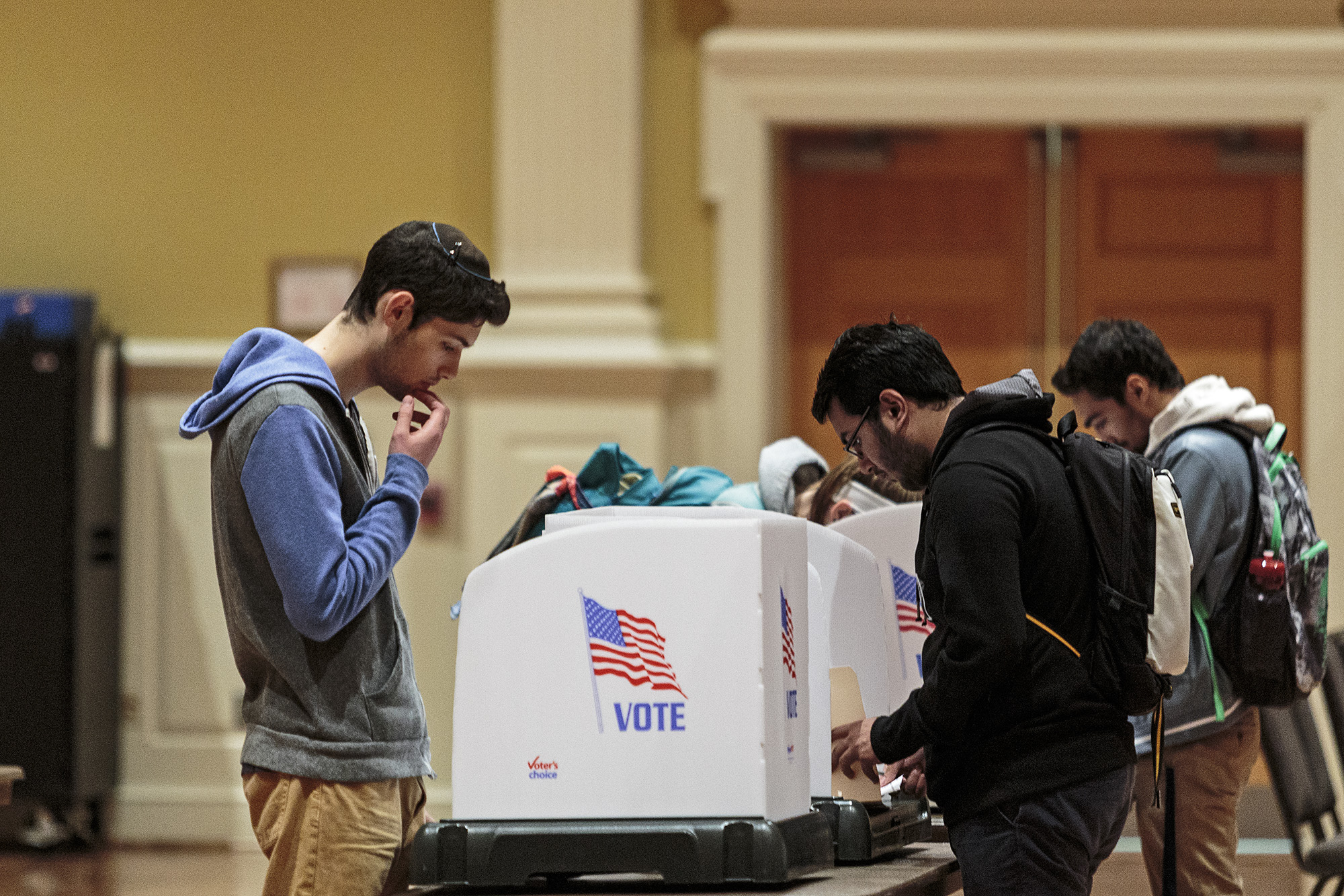Views expressed in opinion columns are the author’s own.
In his speech marking the passage of the Voting Rights Act of 1965, President Lyndon Johnson said, “however viewed, the denial of the right to vote is still a deadly wrong.” He believed the legislation, aimed at blocking local governments from passing discriminatory voting laws, would usher in a new era of racial equality. He went as far as to say the law allowed him to “strike away the last major shackle” of black oppression in America. This was far from the truth.
Though the Voting Rights Act widened the franchise for many previously blocked from the polls, the 2016 election was a reminder of the distance between Johnson’s rhetoric and the reality of elections in America. Journalist Ari Berman pointed out that this was the first presidential election in five decades without the full protections of the Voting Rights Act.
Of course, voter disenfranchisement was still a problem during these years, but in 2016, things arguably got worse. In the past seven years, 10 states passed more restrictive voter ID laws, and six cut down on early voting times — both acts aimed at suppressing poor communities of color. In 2016 alone, 14 states had new restrictions in place for the election, directly removing some protections of the Voting Rights Act. People were turned away for having an expired driver’s license, such as 85-year-old Margie Mueller, or for not having a license in their new state of residence, such as Andrew Voegele (unless he paid $34 for a new one).
Beyond voter ID, Republican-run election boards in places such as North Carolina closed or cut down hours of polling venues, inconveniencing communities of color. In that state alone, there were 40 predominately black counties with 158 fewer early polling places. What we saw this past election goes beyond the lingering traces of Jim Crow or a still-unfinished vision of LBJ. Voter suppression has become more prevalent and aggressive.
It can’t be put into print enough: voting is a right, not a privilege. The Constitution does not grant us the right to vote based upon our ability to afford up-to-date photo identification. Our trust in the voices of the people cannot be qualified with fine print. As long as America blocks its citizens from voting, whether through poll taxes or voter ID laws, we cannot call ourselves a true democracy.
My purpose in writing this is not to play a painful game of “What If?” and imagine an election with better voter protection. I am not writing to debate how Donald Trump only won because of voter suppression. Both arguments ignore that these outcomes are part of something bigger. Institutional racism, driven by a history of white supremacy, aided the passage of discriminatory voting laws, and in effect, the Trump campaign. It is not by some fluke that Trump won. This outcome is fitting within a system of existing structures that have historically put whiteness first. Voter suppression has not disappeared; white supremacy in America remains intact and in power. It is essential that we all acknowledge this so we do not misconstrue voter suppression as coincidental or uncoordinated. Only after we bring this problem, and its roots, back into public discourse can we hope for change.
In addition to making the problem known, ending the voter suppression we see in America today must be a top legislative priority. There is likely no greater way to preserve the prevailing status quo than to block marginalized communities from voting. Ensuring equal voting rights is a necessary step to chipping away at institutional racism that tries to block people of color. Johnson grossly underestimated the work that had to be done, but he was correct in arguing that the vote is a powerful instrument in fighting injustice. It is imperative that we demand protection of voting rights for all, with the knowledge that true change at the polls will only come once we open the doors to everyone.
Jack Lewis is a junior government and politics major. He can be reached at jlewis20@umd.edu.



